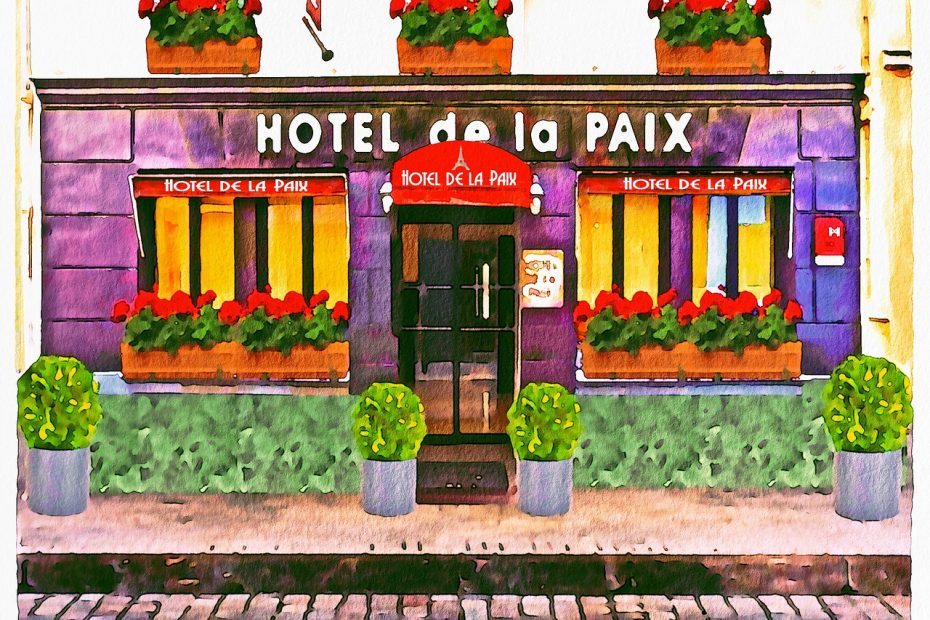I- Furnished property or hotel residence
1. Income taxation
The applicable regime is “B.I.C.” (Industrial and commercial profits). Thus, the choice between two tax regimes is possible:
The micro for activities with an annual turnover not exceeding € 33 200. The operators must only keep a chronological log of receipts and a register of purchases. They declare only the amount of turnover on the income tax return. The tax administration determines the taxable income by applying a flat-rate reduction of 50%.
In the case of rental in a furnished tourist residence, the turnover ceiling amounts to € 82 800 and the flat rate of abatement to 71%.
The real system compulsory for activities for an annual turnover exceeding € 33 200. It is obvious that the operator must opt for the real if he finds that his costs are higher than the amount of the standard deduction applied automatically in the “MICRO” system. This tax choice makes it possible to deduct the amount of depreciation based on the value of the property acquired. In addition, in the event of a loss, you may deduct the amount of such loss from his future incomes.
The landlord will be considered as a professional rental if it is registered in the commercial register, if its annual income exceeds € 23 000 and if this activity is more important than the other professional activities of the whole household. In this case, a possible deficit may be deducted from the other household incomes and the lessor may be exempted from tax on capital gains after 5 years of activity.
2. Possibility of recovering the VAT on the purchase price of the property
The activity is subject to VAT at the rate of 10% if it falls into one of the following cases:
- Hotel of tourism classified,
- holiday village or classified tourist residence,
- When the owner, in addition to the rental, offers three services from the following four:
- Breakfast,
- Regular cleaning of premises,
- Supply of household linen,
- Reception.
Since the VAT is applicable to turnover, it will of course be recoverable on the purchase price of the property as well as on maintenance or improvement expenses.
3. Possibility to carry out the acquisition through a commercial company
To avoid major business risks and to facilitate future transmissions (sales or donations), it is possible to set up a commercial company (S.A.R.L., S.A.S. or S.A.) which will become the owner of the property. It is also possible to acquire the property by a civil society that will conclude a commercial lease with a company in charge of the exploitation. In such a case the company will in principle be subject to corporation tax at the rate of 15%.
There is a wide range of possible structures, an accountant can help you to make that choice.
II – Unfurnished property
1. Income taxation
The “Revenus fonciers” regime applies when the property is acquired by a natural person or a civil society (S.C.I.). The profit is calculated annually (January 1st to December 31st ) using the following method:
Products:
- Rents received during the year,
- Grants received.
Charges:
- Repair and maintenance,
- Co-ownership fees,
- Management fees (procedures, concierge, etc.),
- Insurance premium,
- Taxes (mainly property tax),
- Interest on borrowings.
It should be noted that this tax category does not allow the deduction of depreciation.
2. VAT regime
VAT does not apply to apartment rental activities, so it cannot be recovered from the purchase price of the property. On the other hand, in case of acquisition of business premises or offices, it is possible to opt for the VAT on the rents and to ask for the refund of the VAT paid at the time of purchase as well as VAT on the subsequent expenses of works and maintenance.
3. How to deduct the depreciation charge from the tax profit?
- When the property is acquired by a commercial company (S.A.R.L., S.A.S. or S.A.), the income is then determined as in the case of commercial profits. Thus, the total costs incurred and therefore the amortization expenses are deducted.
- In the event of an acquisition through a “S.C.I.”, the tax option for corporate income tax has the same effect as above.
It is very important to note that the choice for this tax system is irreversible and that in all cases the corporation tax regimes entail significant consequences on the amount of the capital gains tax that will be due at the time of sale of the property.
In conclusion, we must again specify that it is extremely important, even in a building purchase transaction that seems very simple at first sight, to present your project to a French speaking accountant before making your final choice.



